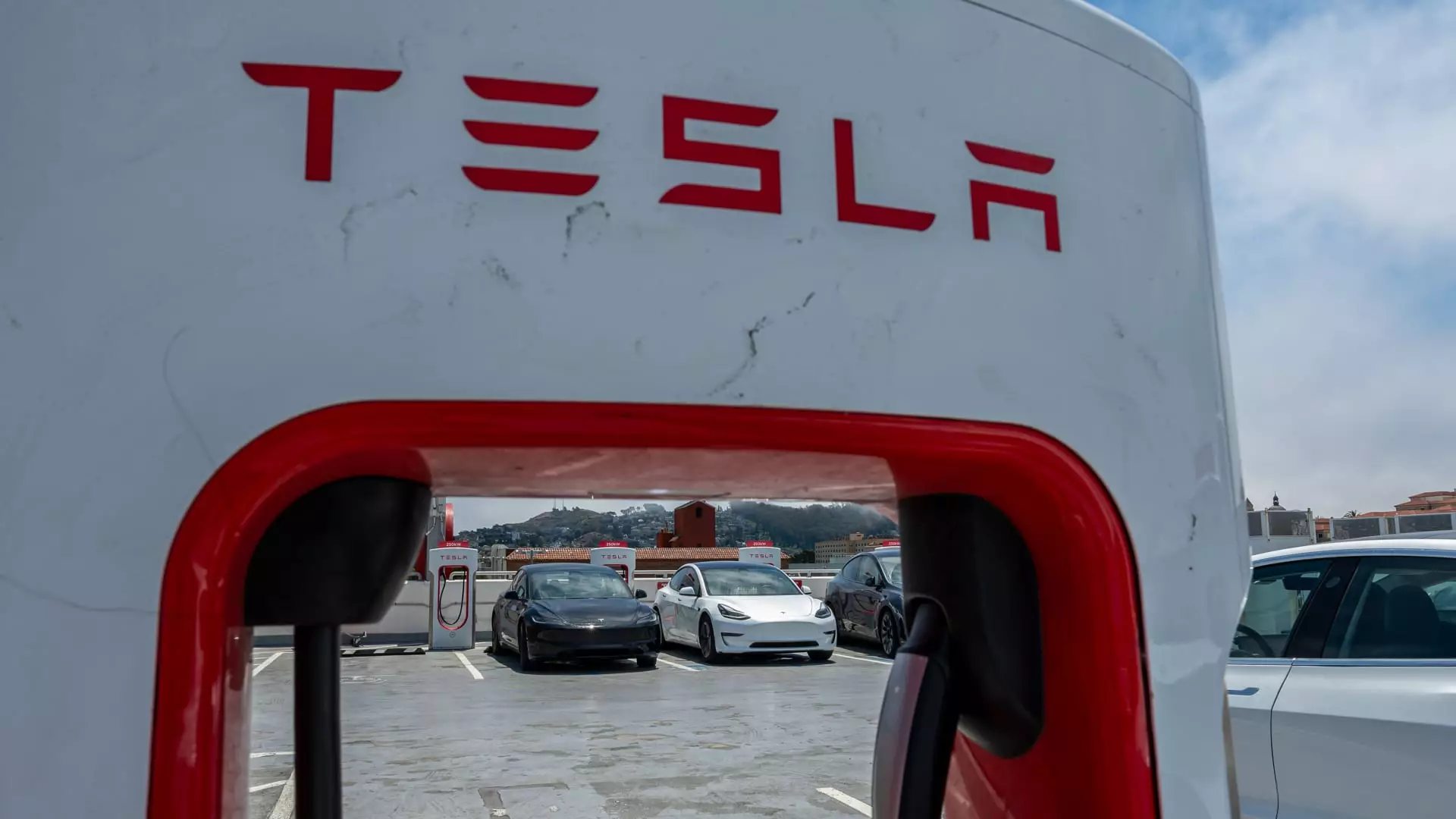Recent developments in the political arena, especially Elon Musk’s announced formation of the “America Party,” exemplify how geopolitical maneuvering influences investor confidence. Musk, a figure often seen as a disruptor, signals a move toward a more polarized political environment that could destabilize markets further. Critics may dismiss such efforts as distractions, but from a pragmatic perspective, they reveal the deepening divisions that threaten economic stability. While Musk’s initiative aims to realign American politics, it introduces a layer of unpredictability for investors who crave stability and clarity. The backlash from figures like Trump underscores this tension, suggesting that ideological conflicts are spilling over into economic decision-making, eroding the cohesive environment necessary for sustained growth.
Ride-Hailing and Resource Sectors: Divergent Fortunes
Uber’s remarkable rally, gaining nearly 60% within a year, underscores the resilience of technology-driven transportation in a shifting landscape where traditional sectors face headwinds. Despite broader economic uncertainties, Uber’s rise indicates that innovative market players can thrive amidst volatility. Conversely, commodities like Royal Gold and MP Materials highlight the fragility of resource-dependent industries. Royal Gold’s 8% plunge following a multi-billion-dollar acquisition signals the risky intricacies of expansion, where large deals may distract from core operational strengths. MP Materials’ decline after a downgrade, despite a slightly higher price target, exposes how geopolitical tensions and trade restrictions—particularly in China—remain persistent hurdles for the rare earth sector vital to modern industries.
Automotive Giants and the Electric Surge
Stellantis’ dip reflects the skepticism surrounding the European EV segment, especially under leaderships in transition. While the electric revolution is touted as inevitable, the reality is that legacy automakers face complex challenges in adaptation, market positioning, and competition. The downgrade from Bank of America signifies that firms like Stellantis are not yet fully prepared to capitalize on this shift, highlighting that a company’s stance on EVs alone does not guarantee success. The ride-hailing sector’s outperforming performance also signifies that digital mobility can outpace traditional automotive models, but a cautious investor must question whether the momentum is sustainable or just a short-term trend fueled by speculation.
Corporate Mergers and Growth Strategies: Risks and Rewards
The merger between Capgemini and WNS Holdings, boosting WNS’s valuation by 17%, illustrates how strategic acquisitions can provide a much-needed boost in a sluggish global economy. Yet, these large deals come with inherent risks—cultural clashes, integration issues, and post-merger value realization—that can dampen initial optimism. Similarly, the private prison industry’s modest gains following increased government spending on immigration centers exemplify how government policy can artificially inflate certain sectors, but this reliance on political decisions may lead to unsustainable growth patterns. Investors should scrutinize whether such policies are merely a short-term stimulus or if they herald long-term structural changes.
The Biotech and Energy Sectors: Volatility Underlying Innovation
The sharp decline in Apogee Therapeutics shares after disappointing trial results underscores the unpredictable nature of biotech investments. High potential often comes with high risk, and while a 71% reduction in eczema severity is impressive, failure to meet broader clinical endpoints can devastate confidence quickly. Conversely, energy companies like Shell remain vulnerable to global commodity shifts, with weaker gas trading risking earnings and unsettled markets. These sectors continue to demonstrate how innovation and global demand are inextricably linked with geopolitical stability—highlighting the importance of cautious optimism in industries that are both essential and volatile.
Tech and Social Media: The Double-Edged Sword
CrowdStrike’s recent downgrade after a rapid run-up exemplifies how valuation concerns can quickly shift investor sentiment, especially when momentum seems overextended. Cybersecurity remains vital in a hyper-connected world, but liquidity and valuation bubbles threaten market stability. Meanwhile, SolarEdge’s fall after a promising week reveals how policy and legislative changes—like the removal of clean energy subsidies—can suddenly alter the playing field. This juxtaposition exposes the difficulty of forecasting the long-term sustainability of renewable energy companies without consistent policy support, despite their apparent growth potential.
Energy, Hospitality, and the Fight for Market Share
The decline of Shell and MGM Resorts reflects broader economic pressures. The energy sector’s vulnerability to commodity price swings reinforces the importance of diversification and conservative strategies in traditional industries. Similarly, MGM’s underperformance hints at the challenges faced by leisure and hospitality giants in maintaining cash flow amidst rising operational costs and shifting consumer preferences. Their struggles symbolize the broader difficulty of sustaining profit margins in sectors heavily influenced by geopolitical and macroeconomic fluctuations.
These market movements underscore a complex landscape where political instability, technological disruption, and global uncertainties intertwine—each acting as both a threat and an opportunity for strategic investors. An astute observer must recognize that instability is inherent in this transitional phase, and only by critically assessing these underlying forces can one hope to navigate the chaos with a cautious yet optimistic mindset.

